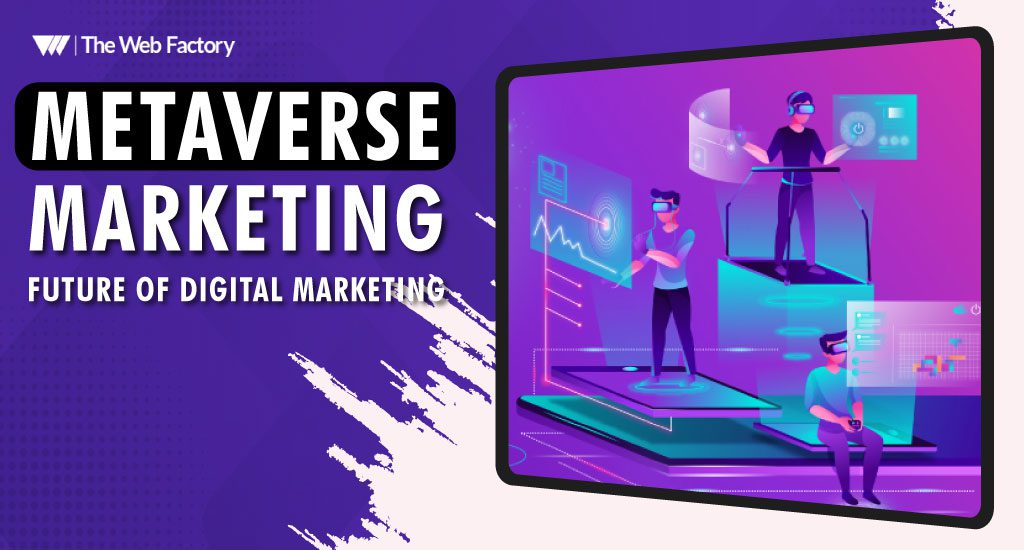Do you know what’s better than soap operas? Movies! And what’s better than movies? MOVIES IN 3D. Now, imagine someone creating a 3D version of our reality. How would that go?
And what if I tell you we are already there? Yes, you heard me right!
Today, technology has enhanced the world, so much so that we have augmented reality (AR) and virtual reality (VR). Welcome to the Metaverse, everybody!
A year ago, the world went on complete lockdown due to the pandemic. The epidemic resulted in a complete change of our normals — the physical wasn’t cool anymore. Online became the new normal, and the world adjusted to being online daily.
The rise in the use of digital means of communication brought with it a rise in the enhancements and innovations in digital technology. Different social media platforms journeyed to create the best user experience.
On the transformation journey, Facebook changed its brand identity to Meta. The social media application stepped into the challenge of revolutionizing the concept of being digital and interchanging it with the concept of being in a 3D virtual reality — what we saw happening only in movies — just became very real!
And that’s precisely what we are going to explore in this blog. We’ll see what Metaverse is and how metaverse marketing is changing the course of digital marketing.
What Is Metaverse?
While the term “metaverse” has become worldwide in recent years, it was originated by an author named Neal Stephenson. He coined this term in his 1992 sci-fi novel Snow Crash.
Stephenson described the Metaverse in his book as an all-encompassing digital universe that exists alongside the actual world. However, analysts are unsure if the metaverse IRL may evolve into something comparable in 2022.
But what exactly can Metaverse do? That is what lies ahead of us.
The Metaverse will be a location where people may be able to access and interact through virtual or augmented reality. Because of this technology, people would be able to engage in social activities & amusement like never before.
The notions of participation, engagement, and interaction drive the Metaverse. Many analysts regard the Metaverse as a three-dimensional model of the internet.
Essentially, it is a parallel world where you spend your digital existence. A location where you and other people each have an avatar and interact through their avatars. Some contend that the Metaverse, in its most literal meaning, does not yet exist.
What Is Metaverse Marketing?
The Metaverse has been described as a communal virtual shared place formed by merging virtually improved, physically persistent virtual space and physical reality, which includes all virtual worlds, augmented reality, and the internet.
However, you must be wondering about Metaverse marketing. That’s the main focus of this blog.
Metaverse Marketing is EXACTLY what the name suggests. Self-explanatory, isn’t it? It’s marketing your businesses in a virtual reality setup where augmented reality explains different aspects of your business.
Sounds fascinating, doesn’t it?
Marketers continuously seek to keep ahead of technological advancements, so it’s no wonder that metaverse marketing has emerged as a popular topic in digital marketing.
The Metaverse is poised to become a site where customers spend more time, interact with brands, and even purchase virtual goods as the line between the actual and virtual worlds becomes increasingly blurred.
Brands are shifting their digital marketing strategy toward the Metaverse to remain relevant to millennial or Gen Z audiences.
As superficial as it may sound right now, Metaverse can surely revolutionize the world by digitalizing the marketing process more fully. Hence, brands need to keep up to date with the new technologies that will eventually become the future of digital marketing.
Digital Marketing In Metaverse — How Can Businesses Prepare For Metaverse
Undoubtedly, many brands would appreciate a metaverse roadmap and step-by-step directions on how to succeed. Unfortunately, the “rules” have not yet been established.
The Metaverse is still in its infancy, and everyone is experimenting to see what works as they research, engage, and test new marketing methods.
That being said, businesses may do a few things to gain a competitive advantage, especially as more people with various backgrounds and interests enter and explore the Metaverse.
Here are a few important factors to consider if you want to market your business on Metaverse.
1. Create A Metaverse Strategy
While no one can completely foresee what the Metaverse will bring, one thing is certain: it will significantly impact businesses and marketing tactics across a wide range of industries.
Brands seeking to target an increasingly online audience will need to develop new strategies, including techniques for meeting and interacting with this wide variety of consumers on their territory.
It’s critical to note the parallels between the Metaverse and the early days of social media.
While many organizations historically relied on a single manager to navigate social media marketing, that strategy eventually led the way for full teams committed to executing intricate campaigns and instructions on how to do so.
As a result, the emergence of the Metaverse is expected to follow a similar trend, with larger brands establishing many rules governing how other brands should conduct digital marketing in this new environment.
2. Explore Non-Fungible Tokens
Non-fungible tokens (or NFTs for short) will likely offer exciting new chances for firms aiming to boost their digital marketing strategies through distinctive brand experiences and awareness campaigns and connect with their target audience as one of 2022’s major marketing strategies trends.
They fit nicely in the Metaverse as digital representations of real-world goods, providing their owners exclusive ownership of art, music, in-game items, and even videos. NFTs, which can be sold and bought with bitcoin, are gaining popularity as many creators and businesses experiment with the technology.
To date, a whopping $174 million has been spent on NFTs, showcasing the financial possibilities for creators and brands willing to go outside the box regarding intellectual property.
Are you confused about what NFTs are? Don’t worry. We’ll get to that!
A Non-Fungible Token, also known as an NFT, is a digital asset representing real-world goods such as art, music, in-game items, and videos. They are often encoded using the same underlying software as many cryptos and are acquired and exchanged online, frequently using bitcoin.
Even though NFTs have been around since 2014, they are becoming more popular over time as a way to buy and trade digital artwork. In 2021, the market for NFTs alone will be worth around $41 billion, nearing the total value of the global fine art business.
What do NFTs have to do with Metaverse, you may ask?
NFTs are valuable in the Metaverse for generating exclusive settings and improving the digital community and social experiences.
Premium NFTs are utilized to access the digital world’s wealthiest and most affluent communities with special benefits, staking prizes, and other high-end collectibles.
3. Work On Your Social Media Marketing
The Metaverse resembles the early days of social networking in many respects. As more firms recognize the power of social media marketing and its impact on people’s spending patterns, they can use this information in new and inventive metaverse marketing techniques.
Facebook views itself as a metaverse company in the future. And we all know that Facebook has a certain influence over other social media applications.
Since we already established commonalities between social media platforms and Metaverse, your social media strategies might help you create a metaverse marketing strategy for your business.
How Can You Market Your Business On Metaverse?
Metaverse marketing brings a lot of new opportunities for you to explore. You can try different virtual reality practices to market your business. We have written down a few for you.
1. GAMES!
You don’t have to become a game developer to create a metaverse. However, you must gamify your user experience. Users must be motivated to interact in your Metaverse. Gamification is an excellent tool for accomplishing this.
Create a series of mini-games and reward users for winning points. Possible incentives include virtual merchandise for their avatars, building materials, and unlocking award tiers with the possibility of a grand prize at the highest tier.
2. Sell Your Branded NFTs
One of the most important components of the Metaverse is crypto or blockchain — hence, NFTs come into the role. Developing a brand NFT for metaverse marketing can increase brand awareness.
Statista shows substantial interest in NFTs from brands such as Adidas, Nike, and Taco Bell among audiences of all demographics. So, if international brands recognize the power of NFTs, it speaks volumes.
Many digital resources can provide information on how to create an NFT. Investing in this strategy will allow your users to take something memorable from your Metaverse and brand.
It’s also a fantastic idea to create unique NFTs and connect them with product launches, as Nike did with its “CryptoKicks.” Before producing an NFT, determine what your target audience would find beneficial.
3. Sell Digital Products For Avatars
We just talked about gamifying metaverse marketing by rewarding digital things to avatars. You can, however, sell special products. People desire to create virtual avatars, and VogueBusiness verifies that more than 90% of people agree.
Several brands have also employed this method and profited greatly. Gucci sold a virtual bag for $4115 on the Roblox platform, and Digital Coutour sold a dress (also digital) for $9500.
While your company may not be as well-known as Gucci or Digital Couture, these staggering figures demonstrate how eager customers are to spend money on digital products.
4. Metaverse Advertising
Although you should prevent forceful and intrusive advertising in your Metaverse, you should incorporate it. This can be accomplished through billboards, banners, and your business emblems on buildings.
Be inventive in how you promote your brand naturally. This will not only keep your brand in front of your customers all the time but also customize your Metaverse.
Is Metaverse The Future Of Digital Marketing?
To put it simply, yeah!
As technology advances, more of your target audience will be located in the Metaverse. Important figures such as Mark Zuckerberg are working to develop virtual reality and augmented reality (AR) technology.
But it’s not just him. Other prominent Silicon Valley leaders are committed to transforming metaverses into the next phase of the internet. The chances are in their favor.
As a result, marketers will need to adjust. Consider how much more you rely on digital marketing now if you’ve been in the marketing profession for over a decade. What happened to making fliers, cold phoning, and saving money for billboards?
As technology progressed, so did the marketing techniques. The same reasoning now applies to the Metaverse. Every year, evidence suggests that we are becoming more dependent on technology. Therefore your options are to adapt or fall behind.
Whether you’re trying to create your app, game, or Metaverse or advertise through an established one, this is an exciting new opportunity for marketers to reach out!
Final Word
A rising number of companies are investing in metaverses for reasons other than entertainment.
Meta’s concept is still relatively new and unique to marketers and businesses. Businesses of all sizes benefit from experimenting with new ideas and employing innovative advertising techniques.
People can gather, create, explore, interact, and, of course, spend money on the Metaverse and future metaverses. Companies that can successfully create new realities and share them with their target clients will usher in a new marketing era.
The much-anticipated Meta Metaverse is still a new and unique notion, particularly for marketers and companies.
However, this technology has the potential to benefit a wide spectrum of enterprises by allowing for inventive metaverse marketing and advertising strategies and unlimited experimentation.
The rise in Metaverse use is no less than a dream come true for many technologists who have worked hard to create an augmented reality. They helped in bringing the concept of ‘going digital’ to life.
Being virtual isn’t moot anymore—it’s the new cool. Metaverse will most certainly eventually become the new normal for the marketing industry.











